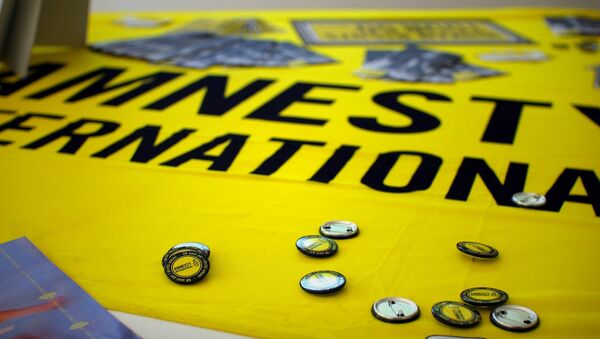Leading human rights charity Amnesty International has a "toxic" working environment, with bullying, public humiliation, discrimination and other abuses commonplace, a report — commissioned after two employees committed suicide in 2018 — has found.
The review, conducted by the KonTerra Group and led by psychologists, identified a hazardous "us vs. them" dynamic at the organization's offices, combined with an almost total lack of trust in senior managerial figures, evidence of "nepotism and hypocrisy", and multiple reports of managers "belittling" staff in meetings, deliberately excluding certain employees from reporting, or making demeaning, menacing comments such as "you're s***!", "you should quit!", and "if you stay in this position, your life will be a misery".
— Lesley Agams (@MzAgams) February 6, 2019
Shockingly, interviews with staff also indicated Amnesty attempted to "cover up" the death of Gaetan Mootoo, the 65-year-old Amnesty France employee who killed himself in June 2018.
One staff member told the review that the organisation's response to Mootoo's death "upset many of us a lot". "The way they announced it, the way they tried to cover up."
— Lyricismist (@lyricismist) February 6, 2019
The consultants focused primarily Amnesty's international secretariat in London, finding the office to be largely operating in a "state of emergency" following a restructuring process to decentralize and move staff closer to the ground in places of civil unrest and conflict, which had taken a "considerable toll" on staff wellbeing, it said. Many Amnesty staffers described their employment as a "life cause" and said there was "significant risk of experiencing stress or trauma" due to the nature of the work they conducted — moreover staff are prone to sacrificing their own wellbeing by taking on massive workloads, leading to "overload and burnout".
Staff also reported multiple accounts of discrimination on the basis of race and gender, with women, staff of colour and LGBT employees targeted for abuse, or treated unfairly, a finding KonTerra branded "disconcerting".
They found multiple instances of alleged favouritism or nepotism in hiring and cases where positions and/or individuals were made redundant "without due process".
In a statement, Amnesty Secretary General Kumi Naidoo said the report was "profoundly troubling", and "unacceptable management practices, attitudes and behaviours cannot and will not be tolerated at any level" in the organization.
"We will now look in detail at the recommendations of the KonTerra review — and in consultation with staff draw up an overall implementation plan, assessing to what extent and in what stages we will deliver on them, and how we best integrate them with James Laddie's recommendations. To that end, I will engage with the wellbeing committee, union and management team to identify what is most urgent and what is seen as most appropriate to address the systemic challenges and to restore trust, and how we best communicate these efforts across the organization. I will present the new plan by the end of March 2019," he pledged.



